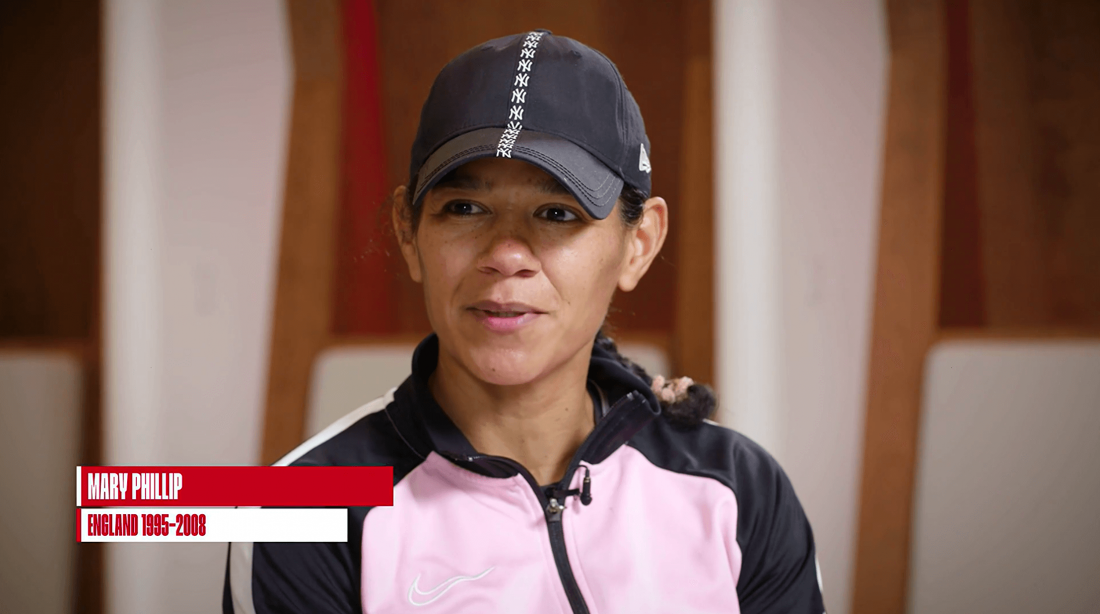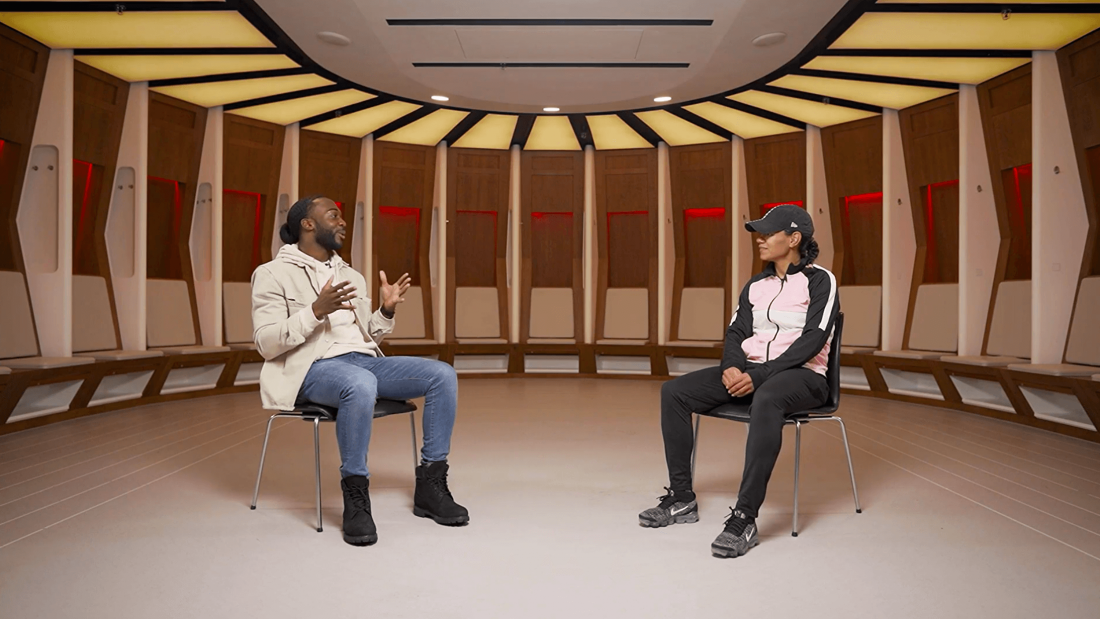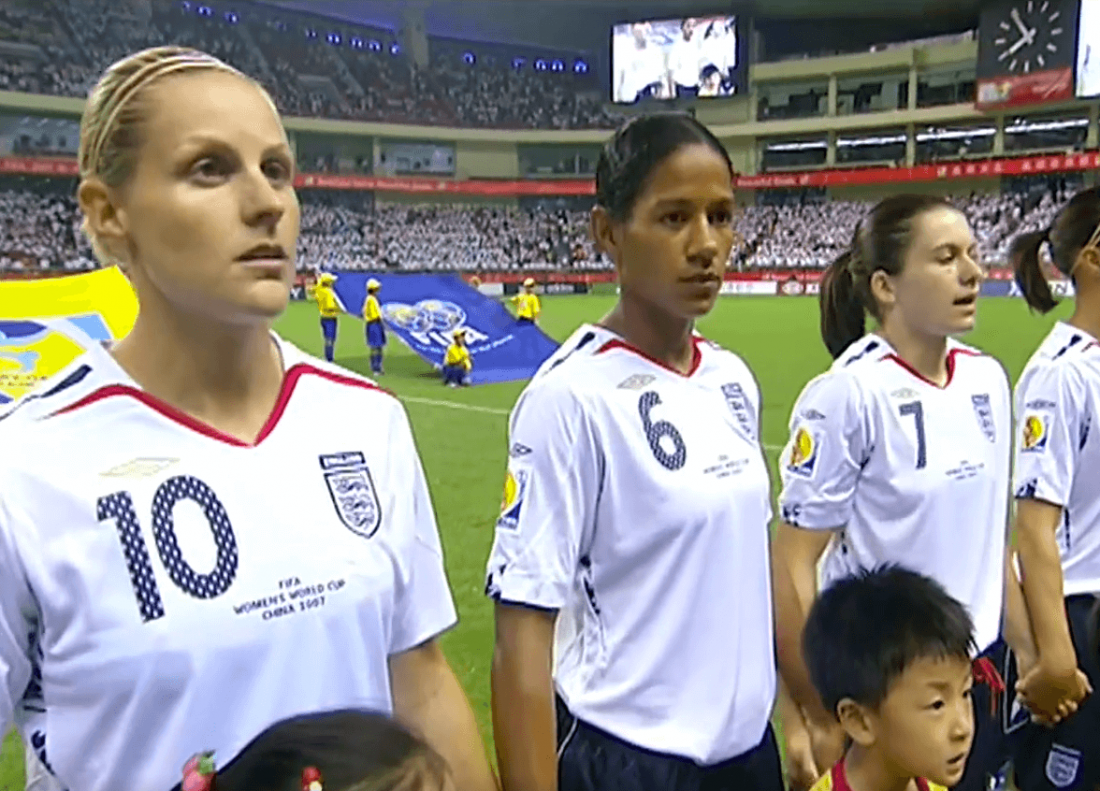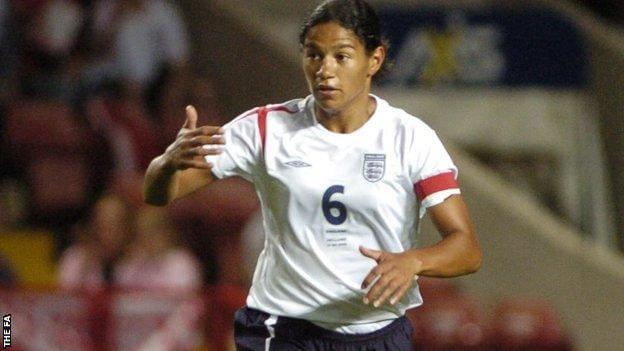Making history as the first ever Black England Captain, Mary Phillip has now booted stereotypes a second time as the first female manager for Peckham Town men’s team.

Image credit: Black, England and Proud
Mary Phillip was recently a guest on Black, England & Proud a new production by the FA, Refresh Productions and Facebook where she discussed navigating the hardships of race, gender, motherhood and illness. The series explores the experiences of Black players who have represented England where Phillips declared: “I’m Black, I’m British and I’m here.”
Phillip, a 43-year-old mother of two and former international England player, started her senior career in 1992, she achieved a successful career as a versatile player, playing in all four positions at the back as well as midfield.
In the interview with Jaydee Dyer, Phillip spoke about her experience in football whilst dealing with the issues around being a Black woman and a young mother of two.
“Born and bred” in Peckham, South London, Phillip began playing football at a young age and started her professional career at just twelve years old. Being female and enjoying the hustle and bustle of the football pitch led to Phillip receiving unwarranted comments from people around her.

Image credit: Black, England and Proud
In the interview Phillip described how she was constantly being told that girls couldn’t play football. “But I want to do them things, I want to play with my brothers, I want to go out. I want to ride bikes; I want to jump off walls. I want to get my clothes dirty and go back home.”
The challenges didn’t stop Phillip from chasing her goal and becoming an international football star. She said: “I think it just fed it, fed my hunger and give me that desire to go ahead and show people that, no I can do this.”
Phillip’s first club was the Millwall Lionesses where she stayed for eight years winning 22 major trophies. At 23-years-old Phillips joined Fulham as a professional player, where she became club captain and lifted the FA Women’s Cup in front of 10,000 fans and 1.9 million viewers broadcasted to the BBC in May 2003. After four years at Fulham, Phillip spent a further four years at Arsenal Ladies in central defence and then spent another year at Chelsea before retiring at age 31.
“I was just brought up to do what you want to do, achieve what you need to achieve and then you can look back at it later and that is what I have done.”
Before Phillip’s premier league debut, she was called up at just 18-years-old to play in the 1995 England World Cup where she wore the captains arm band and made history as the first Black female captain for England.
After her first World Cup, Phillip became pregnant with her first son. She was told that her football career was over now that she was a mother, but Phillip revealed: “I didn’t feel like this was my only option you know. I was thinking if I wanted to do football I still could as long as I made this child a part of my life,” and she did just that. When Phillip returned to the England squad, she was the only England football player at the time to feature in two World Cup squads.
Being a Black woman in football and the first Black captain, race was a factor for stereotypes and judgements, but as a biracial child Phillip said she was not brought up to see colour.

Image credit: Black, England and Proud
“People may have been racist towards me, but it just went over my head. I wasn’t brought up to take note of it. I was just brought up to do what you want to do, achieve what you need to achieve and then you can look back at it later and that is what I have done.”
This changed when Phillip had her two sons and she admitted that she had to raise them differently to the way she was raised due to the typecasting of Black men in London and the rise of stop and searches by police officers that disproportionately affected Black men.
“It was tricky. I can safely say it blew me out the water.”
During the interview, Phillip revealed that she developed an unanticipated illness which put her out of football and into hospital for a couple of weeks. She quickly found out that she had multiple sclerosis (MS), a lifelong condition that affects the brain and spinal cord and causes problems with movement and sensation.
Phillip said: “It was tricky. I can safely say it blew me out the water. I’ve had an international career. I’ve had a very active lifestyle.” Despite this hurdle, Phillip was determined to carry on doing what she had planned, and her children and grandchild were her motivation.

Image credit: Black, England and Proud
Phillip, although still suffering with MS, is now managing Peckham Town men’s football team as the only female head coach in the 91-club Kent County League. At the club she has faced doubters and even received comments asking if she was there to watch her boyfriend play.
What advice would she give to anyone facing challenges? “You’ve just got to have belief in yourself. Unless something’s actually stopping you at full throttle…then you don’t give up.”












